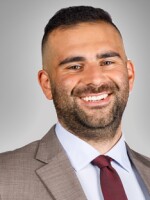BETHLEHEM, PA - Students from Lehigh Valley high schools gathered at the ArtsQuest Center on Wednesday, to learn how to help peers navigate their mental health journeys.
It’s part of an effort to promote Aevidum, a peer support program started at a school in Lancaster County after a student died by suicide. The program’s name, according to the organization, comes from a Latin expression, which loosely means “I’ve got your back.”
- Students from several Lehigh Valley high schools gathered to learn how to support peers’ mental health
- The event was organized in partnership with United Way, and “Aevidum,” a peer-support group that several local schools have adopted
- Students spoke candidly about their own mental health journeys, saying more attention is needed to end the stigma
There were about 120 students from several Lehigh Valley high schools in the conference room. Some of their schools had already adopted Aevidum curriculums, while some had not.
Most of the students in attendance were young women. One organizer said she usually sees an 80/20 split between genders, and part of the goal of the event is to reduce the stigma around young men participating in mental health care.
Fatima’s story
One of the young women in the room was Fatima Adnane, a senior at Nazareth Area High School, who was tasked with emceeing the conference. On stage, she said while she appeared confident and bubbly, things were not always that way for her.

“I’m a first-generation American,” Adnane said. (Her heritage is Moroccan) “And mental health has always been something on my agenda and something I’ve been struggling with. From a young—very young—age, it was obvious that my parents, unfortunately, were not very educated on how to deal with mental illness, especially themselves not being given the resources at a young age. So, I made it my mission to find a club in my school that would help me reach out to my fellow classmates and share my ideas and make a voice for students just like me.”
Adnane is now a student leader for the Aevidum club at her school, and was referred to as an “advocate” by two of the event organizers.
Emily’s story
Another student speaking at the conference was Emily Saab, who is a senior theater major at Lehigh Valley Charter High School for the Arts. Like Adnane, she took command of the stage, and did not hesitate in sharing her own mental health story with a room full of her peers.
She shared with the group a technique she said works best for her in helping promote mental wellness in others: kindness.
“I go to Dunkin [Donuts] like, three days a week,” she said with a laugh, holding the microphone while walking around the stage like a standup comedian. “And, I try every single time I go there, to compliment the person at the drive-thru. Compliment the person who opens the door for you. Compliment your teacher, compliment your friends and be genuine: Don’t say it if it’s not real. I feel like the compliment should come from your heart.”
From her perspective, Saab said, a small compliment can make an enormous difference for someone who might be on the verge of giving up.
Georgia Bomgardner
Many of the students at the conference credited one psychologist for helping them take charge of their mental health: Georgia Bomgardner.
Bomgardner is an adjunct professor in Lehigh University’s College of Education and assistant director for the Shanthi Project, a local non-profit that provides mindfulness services to the greater Lehigh Valley and New Jersey communities.

On stage, Bomgardner shared practical tips for combatting mental health crises and panic attacks. One of the techniques she taught was called five-finger breathing.
“As you trace up, breathe in,” Bomgardner said, pointing to the outline of her index finger, following it from root to tip. “As you trace down, breathe out.”
Students followed along and took notes in their notebooks.
Bomgardner clarified that the breathing technique doesn’t “make the problem go away,” but it does have science-backed benefits.
“Your brain starts to get oxygen back to the prefrontal cortex to the hippocampus,” Bomgardner said. “Those parts of the brain that have gone offline because your amygdala is taking over. So when we breathe, we can reconnect all those systems from our gut to our brain, and start to calm some of those responses down.”
Creative solutions
One of the segments of the seminar was an interpretive dance performance put on by three students from Lehigh Valley Charter High School for the Arts. They wore black ballet-style dresses, and performed a choreographed number to the song “Trauma” by artist NF. They lifted and hugged one another and appeared to cry to illustrate one’s journey with mental health and needing support.
One audience member said she was especially moved by the performance. Mary Pritchard, director of Outreach for Aevidum, rushed over and offered hugs afterwards.
“I just so enjoy seeing the students use their talents to convey a message around empowerment, and opening the conversation around mental health. It just, it jazzes me,” Pritchard said. “I get so excited. Because I worked in the field for 38 years before I retired, and did this and it was our biggest barrier: people not willing to be open about their experience.”


